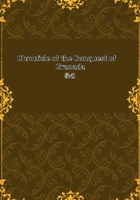
第17章
Muley Abul Hassan now became sensible of his error in hurrying from Granada without the proper engines for a siege. Destitute of all means to batter the fortifications, the town remained uninjured, defying the mighty army which raged and roamed before it. Incensed at being thus foiled, Muley Abul Hassan gave orders to undermine the walls. The Moors advanced with shouts to the attempt. They were received with a deadly fire from the ramparts, which drove them from their works. Repeatedly were they repulsed, and repeatedly did they return to the charge. The Christians not merely galled them from the battlements, but issued forth and cut them down in the excavations they were attempting to form. The contest lasted throughout a whole day, and by evening two thousand Moors were either killed or wounded.
Muley Abul Hassan now abandoned all hope of carrying the place by assault, and attempted to distress it into terms by turning the channel of the river which runs by its walls. On this stream the inhabitants depended for their supply of water, the place being destitute of fountains and cisterns, from which circumstance it is called Alhama "la seca," or "the dry."
A desperate conflict ensued on the banks of the river, the Moors endeavoring to plant palisades in its bed to divert the stream, and the Christians striving to prevent them. The Spanish commanders exposed themselves to the utmost danger to animate their men, who were repeatedly driven back into the town. The marques of Cadiz was often up to his knees in the stream fighting hand to hand with the Moors. The water ran red with blood, and was encumbered with dead bodies. At length the overwhelming numbers of the Moors gave them the advantage, and they succeeded in diverting the greater part of the water. The Christians had to struggle severely to supply themselves from the feeble rill which remained. They sallied to the river by a subterraneous passage, but the Moorish crossbowmen stationed themselves on the opposite bank, keeping up a heavy fire upon the Christians whenever they attempted to fill their vessels from the scanty and turbid stream. One party of the Christians had, therefore, to fight while another drew water. At all hours of the day and night this deadly strife was maintained, until it seemed as if every drop of water were purchased with a drop of blood.
In the mean time the sufferings of the town became intense. None but the soldiery and their horses were allowed the precious beverage so dearly earned, and even that in quantities that only tantalized their wants. The wounded, who could not sally to procure it, were almost destitute, while the unhappy prisoners shut up in the mosques were reduced to frightful extremities. Many perished raving mad, fancying themselves swimming in boundless seas, yet unable to assuage their thirst. Many of the soldiers lay parched and panting along the battlements, no longer able to draw a bowstring or hurl a stone; while above five thousand Moors, stationed upon a rocky height which overlooked part of the town, kept up a galling fire into it with slings and crossbows, so that the marques of Cadiz was obliged to heighten the battlements by using the doors from the private dwellings.
The Christian cavaliers, exposed to this extreme peril and in imminent danger of falling into the hands of the enemy, despatched fleet messengers to Seville and Cordova, entreating the chivalry of Andalusia to hasten to their aid. They sent likewise, imploring assistance from the king and queen, who at that time held their court in Medina del Campo. In the midst of their distress a tank or cistern of water was fortunately discovered in the city, which gave temporary relief to their sufferings.